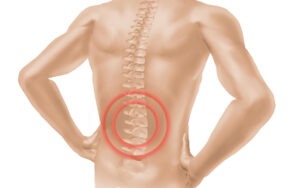Waist


Lumbalgia
Lumbalgia
Features of the disease
The main symptom of lumbalgia is pain of varying degrees of intensity. Acute lumbalgia manifests itself on one or both sides. The pain can appear and intensify with one body position or with a change in posture (body position).
Symptoms of lumbalgia
Pain in the lower back intensifies with bending, physical exertion
Pain radiates ("shoots", spreads) to the buttocks and (or) legs
Numbness, tingling in the legs
Restriction of movements
Discomfort during ordinary movements associated with slight bending (for example, when washing)
Muscle spasm and tension in the lumbar region
Disturbance of the internal organs
The exacerbation of pain increases on the 4th-5th day. In a chronic state, periods of exacerbation increase, soreness increases, and the pain affects not only the lower back, but also the sacrum, buttocks, and legs.
Treatment of lumbalgia
Depending on the causes of the pain, the treatment regimen varies. Therefore, treatment tactics and diagnosis begin with diagnostic measures.
At the initial stage, the disease is very easily treated, but do not self-medicate. This can lead to the chronicity of the disease, in which pain attacks will recur for years.
Treatment of the disease can be carried out in our prevention and rehabilitation center. Therapy is carried out using a non-surgical conservative method. We will do everything to help you get rid of pain and restore your ability to work.
Below are several methods of treating lumbalgia.
Healthy lifestyle for women, girls and children
Contact
leave your Contact info and we will contact you
aroxjvarqagic@gmail.com
